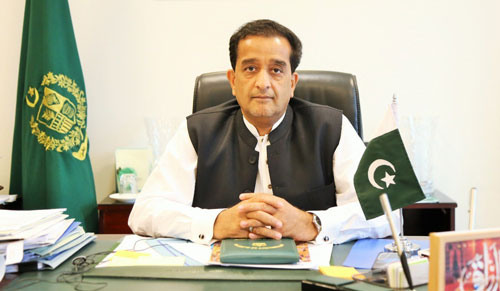Staff Reporter Islamabad
Special Assistant to the Prime Minister (SAPM) on Climate Change Malik Amin Aslam Tuesday said Pakistan emits less than one per cent green house gas emissions globally and was focusing on energy and transport sectors conversion over clean modes.
Addressing the Institute of Urbanism (IoU)’s Meeting for Eco-Journalists Cohort and launching of the Institute’s first ever report based on its dialogue series titled ‘Mobility Patterns Amid Growing Urbanization’ also supported by Heinrich Boll Stiftung, he said Prime Minister Imran Khan had a clear vision of becoming part of the solution to climate crisis not a part of it.
Amin said, ‘The policy shift of the government has been driven by shifting of energy mix to 60 per cent renewable by 2030.
Transport sector conversion of 30 per cent of the total to Electric Vehicles.’ He said electric vehicles had 70 per cent cheaper operational cost and 60 per cent less emissions as compared to fuel based automobiles.
‘Six textile industries of the country have announced to go zero emission manufacturing units. Pakistan has become the first developing country in the world to take such ambitious target committed by its private sector,’ he underlined. The SAPM announced that the government was making efforts to add 26 more companies to take on that target till UNFCCC 26th meeting of the Conference of Parties (COP-26).
‘Pakistan is the only country implementing ecosystem restoration measures on ground where the world is only talking on tackling climate change,’ he added. Amin elaborated the reason behind rising temperatures in the urban areas of the country.
He said, ‘Our cities are facing Urban Heat Island impact that creates increasing temperature due to concrete jungle and negligible green cover leaving no source of oxygen to reduce temperature.’
Founding Executive Director, IoU Mome Saleem said the aim of the meeting was to develop partnership with media on urbanism leading to areas of focus of urban mobility, solid waste management, sustainable consumption patterns and eco-friendly transport.









